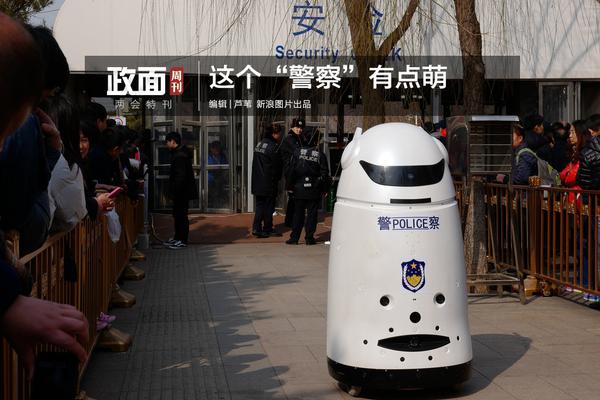
The five functional modules of the operating system are processor management, memory management, device management, file management and operation management. Processor management The most basic function of processor management is to process interrupt events. After configuring the operating system, various events can be processed.
The functions of the computer operating system include: processor management, memory management, device management, file management, job management and other functional modules. Processor management. The most basic function of processor management is to handle interrupt events. The processor can only detect interrupt events and generate interrupts and cannot process them.
Storage management is divided into several functions: storage allocation, storage sharing, storage protection, and storage expansion.Equipment management has the following functions: equipment allocation, equipment transmission control, and equipment independence. File management: file storage space management, directory management, file operation management, file protection.
The operating system should usually include the following five functional modules: (1) Processor management. When multiple programs are running at the same time, solve the problem of processor (cpu) time allocation. ( 2) Operation management. The program to complete an independent task and its required data constitute a task.
The function of the operating system is mainly reflected in the management of computer resources - microprocessors, memory, external devices, files and tasks. The operating system sets this management function into the corresponding program management module, and each management module is responsible for a certain function.That is, the five functions of the operating system.
The operating system has five functions: processor management: mainly controls and manages the work of the CPU. Storage management: mainly carry out memory allocation and management device management: mainly manage basic input and output device file management: responsible for the organization, storage, operation and protection of computer files, etc.

There are the following types of management systems: the management system of the finished product set. This kind of system is a stereotyped management system, which makes a small number of functional adjustments to the software through the parameter settings of the software.
Transaction Processing System (TPS): Operators and supervisors are used to input transactions, events, sort, list, merge updates, output detailed reports, lists and summaries, etc. Management Information System (MIS): Middle managers are used to input general transaction data and simple models to process routine reports.
Adgecal management system Academic management system is one of the most core management systems of the school, which is responsible for arranging and managing the school's teaching activities. It includes curriculum setting, teaching plan, teacher arrangement, examination management and other contents.
VMware vSphere: It is a virtualization management platform that can be used to manage virtual machines, storage and networks, etc. Nagios: It is an open source network monitoring system that can be used to monitor network devices, servers and applications, etc.
Financial subsystem: providing the function of financial management information; Decision support subsystem: make the logistics information system reach a higher level.
ERP management system brand Youyou, Jindie International Software, Wave Software, Dingjie Software, Zhenghang Software. Use friends.
1. System management refers to the information technology system that manages enterprises, and file management is one of the five major functions of the operating system.First, network management refers to the centralized management of resources on the network by network administrators through network management programs.
2. System Management regards organizational components as interrelated and interdependent systems, so it advocates applying the system concept to the management concept.
3. System management refers to the process of maintaining, managing and monitoring computer systems. As an important part of enterprise informatization construction, the importance of computer system management cannot be ignored.
Binance login-APP, download it now, new users will receive a novice gift pack.
The five functional modules of the operating system are processor management, memory management, device management, file management and operation management. Processor management The most basic function of processor management is to process interrupt events. After configuring the operating system, various events can be processed.
The functions of the computer operating system include: processor management, memory management, device management, file management, job management and other functional modules. Processor management. The most basic function of processor management is to handle interrupt events. The processor can only detect interrupt events and generate interrupts and cannot process them.
Storage management is divided into several functions: storage allocation, storage sharing, storage protection, and storage expansion.Equipment management has the following functions: equipment allocation, equipment transmission control, and equipment independence. File management: file storage space management, directory management, file operation management, file protection.
The operating system should usually include the following five functional modules: (1) Processor management. When multiple programs are running at the same time, solve the problem of processor (cpu) time allocation. ( 2) Operation management. The program to complete an independent task and its required data constitute a task.
The function of the operating system is mainly reflected in the management of computer resources - microprocessors, memory, external devices, files and tasks. The operating system sets this management function into the corresponding program management module, and each management module is responsible for a certain function.That is, the five functions of the operating system.
The operating system has five functions: processor management: mainly controls and manages the work of the CPU. Storage management: mainly carry out memory allocation and management device management: mainly manage basic input and output device file management: responsible for the organization, storage, operation and protection of computer files, etc.

There are the following types of management systems: the management system of the finished product set. This kind of system is a stereotyped management system, which makes a small number of functional adjustments to the software through the parameter settings of the software.
Transaction Processing System (TPS): Operators and supervisors are used to input transactions, events, sort, list, merge updates, output detailed reports, lists and summaries, etc. Management Information System (MIS): Middle managers are used to input general transaction data and simple models to process routine reports.
Adgecal management system Academic management system is one of the most core management systems of the school, which is responsible for arranging and managing the school's teaching activities. It includes curriculum setting, teaching plan, teacher arrangement, examination management and other contents.
VMware vSphere: It is a virtualization management platform that can be used to manage virtual machines, storage and networks, etc. Nagios: It is an open source network monitoring system that can be used to monitor network devices, servers and applications, etc.
Financial subsystem: providing the function of financial management information; Decision support subsystem: make the logistics information system reach a higher level.
ERP management system brand Youyou, Jindie International Software, Wave Software, Dingjie Software, Zhenghang Software. Use friends.
1. System management refers to the information technology system that manages enterprises, and file management is one of the five major functions of the operating system.First, network management refers to the centralized management of resources on the network by network administrators through network management programs.
2. System Management regards organizational components as interrelated and interdependent systems, so it advocates applying the system concept to the management concept.
3. System management refers to the process of maintaining, managing and monitoring computer systems. As an important part of enterprise informatization construction, the importance of computer system management cannot be ignored.
 Binance app
Binance app
362.94MB
Check Binance login
Binance login
527.86MB
Check okx.com login
okx.com login
881.98MB
Check okx.com login
okx.com login
223.43MB
Check Binance app
Binance app
751.37MB
Check Binance wikipedia
Binance wikipedia
896.75MB
Check Binance wikipedia
Binance wikipedia
334.65MB
Check Binance market
Binance market
557.68MB
Check OKX Wallet download
OKX Wallet download
649.56MB
Check Binance download APK
Binance download APK
934.21MB
Check OKX Wallet app download for Android
OKX Wallet app download for Android
229.84MB
Check Binance app download Play Store
Binance app download Play Store
588.52MB
Check Binance app download Play Store
Binance app download Play Store
557.87MB
Check OKX Wallet login
OKX Wallet login
261.71MB
Check Binance app download Play Store
Binance app download Play Store
258.64MB
Check Binance wikipedia
Binance wikipedia
919.15MB
Check OKX Wallet Sign up
OKX Wallet Sign up
159.34MB
Check OKX Wallet download
OKX Wallet download
475.71MB
Check Binance app
Binance app
672.92MB
Check Binance app
Binance app
145.47MB
Check Binance download iOS
Binance download iOS
516.31MB
Check OKX Wallet Sign up
OKX Wallet Sign up
578.38MB
Check okx.com login
okx.com login
653.69MB
Check Binance login
Binance login
434.57MB
Check Binance Download for PC
Binance Download for PC
211.34MB
Check OKX Wallet apk download latest version
OKX Wallet apk download latest version
928.23MB
Check Binance APK
Binance APK
767.31MB
Check Binance download APK
Binance download APK
312.23MB
Check Binance download Android
Binance download Android
258.76MB
Check Binance Download for PC Windows 10
Binance Download for PC Windows 10
782.11MB
Check okx.com login
okx.com login
268.52MB
Check OKX app
OKX app
198.85MB
Check Binance Download for PC
Binance Download for PC
496.27MB
Check Binance wikipedia
Binance wikipedia
531.24MB
Check OKX Wallet
OKX Wallet
733.17MB
Check Binance exchange
Binance exchange
722.23MB
Check
Scan to install
Binance login to discover more
Netizen comments More
1075 替天行道网
2025-01-10 17:29 recommend
1094 悬悬而望网
2025-01-10 17:16 recommend
713 草满囹圄网
2025-01-10 16:40 recommend
1860 不吃烟火食网
2025-01-10 16:24 recommend
2469 横行不法网
2025-01-10 16:10 recommend